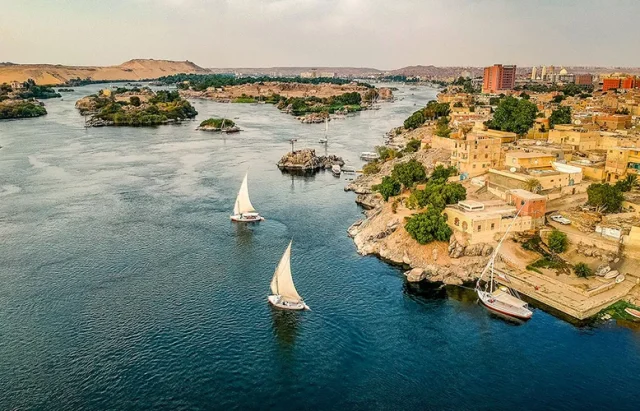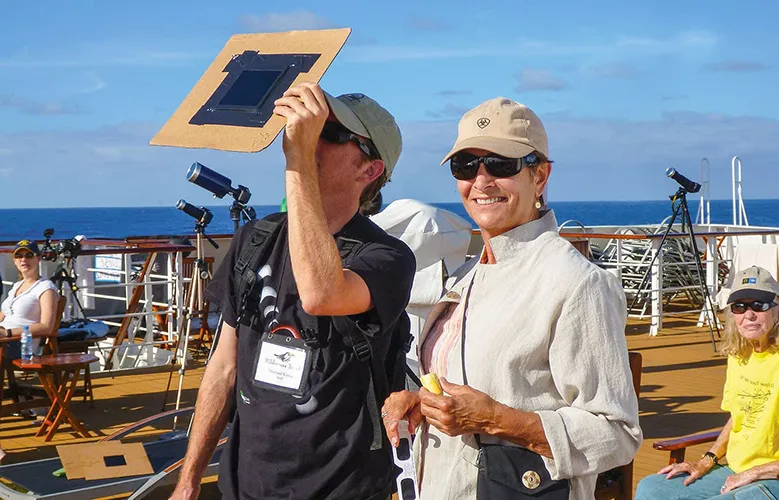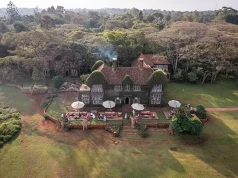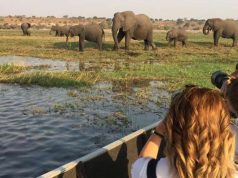
On August 2, 2027, Northern Africa will be the site of a once-in-a-generation total solar eclipse. Why is this event particularly remarkable? During the 2027 eclipse, earth will experience the longest period of totality of the 21st century at 6 minutes and 22 seconds. This length of land totality hasn’t been seen since 1991 and won’t be experienced again until 2132. After more than 30 years of curating exceptional eclipse trips which position guests in the ideal place at the best time to take in the incredible astronomic event, Wilderness Travel is launching a 2027 eclipse journey with intriguing Egypt as the backdrop.
Led by long-time guide of astronomical tours, guest lecturer (this will be his 15th time taking part in a Wilderness Travel eclipse trip!) and esteemed UC Berkley astrophysicist Dr. Alex Filippenko, this 11-day journey from Cairo to Luxor along the river Nile is remarkable for its historical importance, intriguing archaeology, and near-perfect conditions to experience a solar eclipse. In addition to Dr. Filippenko, guest lecturers will include Dr. Bernadette Brady, an expert cultural astronomer who will share how the night sky was perceived, explained, and depicted in ancient Egypt. The group will also learn more about the region’s rich history from renowned Egyptologist Dr. Salima Ikram, a leading scholar in the fascinating practice of funerary archaeology. Together, these expert guest speakers will guide guests through some of Egypt’s most fascinating archaeological places and artifacts, including the temples of Philae, Edfu, and Esna and even special access to the Tomb of Senenmut, home to the earliest known Egyptian star map and the original 12-month calendar, culminating in the shared experience of the total solar eclipse on the top deck of a luxurious private boat.
Why is this location special for eclipse viewing?
Luxor, Egypt is a remarkable place to take in an eclipse because of its remarkably consistent and clear conditions in August, boasting an astonishing 97% clear visibility rate. Many astronomers and weather experts note the place for its unusually ideal viewing conditions compared to other areas like the Strait of Gibraltar and Northwestern Morocco, which have an average 30% cloud cover in August. In addition to ideal eclipse viewing conditions, Egypt is a captivating place – home to one of the oldest human civilizations on earth, with human history, ingenuity, and innovation stretching back thousands of years and enduring today. With some of the best-preserved archaeological sites in the world, including some of the earliest work done to understand astronomy as we know it today, fantastic landscapes, delicious cuisine, welcoming and hospitable people, and a chance for adventure at every corner, Egypt is the perfect backdrop to this once-in-a-generation event.
Why is this relevant now?
Eclipse travel is a growing phenomenon, with more travelers than ever making the pilgrimage to take in these astronomical events. During the 2024 eclipse, where the path of totality covered large swaths of the United States of America, it is estimated that over 4 million people traveled to or within the United States to take in the eclipse, generating over $1 billion in revenue across destinations throughout the path of totality. The 2027 eclipse is particularly notable because of its extended length of totality, which will not be seen again until 2132.
Continue reading to learn about Wilderness Travel’s itinerary for this special event.

Beginning with 4-days of exploration in Cairo, this journey makes its way along the Nile River aboard the luxurious 72-guest Sanctuary Sun Boat IV to Luxor, the pharaohs’ capital at the height of Egypt’s power and an open-air museum of many of Egypt’s major archaeological treasures. The ancient Egyptian astronomers cataloged stars, mapped constellations, tracked the movements of the sun and moon, and wove the workings of the night sky into their culture and mythology. For this once-in-a-lifetime journey, Wilderness Travel has brought together the legacy of those early astronomers, the sheer wonder of a solar eclipse, and the timeless allure of Egypt’s iconic temples and tombs.
In Cairo, visit the brand new Grand Egyptian Museum (GEM), the tombs of Saqqara, and the Great Pyramids of Giza, including a view of the inscrutable and world-famous sphinx. In Cairo, presentations from our luminary Trip Leaders will begin, interpreting eclipses, the cosmos, and history and phenomena closer to home. From there, embark on a fantastic Nile cruise from Aswan to Luxor, with stops at the enchanting temples of Philae, Edfu, and Esna. In honor of the theme of this journey, Wilderness Travel has made special arrangements for access to the Tomb of Senenmut, home to the earliest known Egyptian star map and the original 12-month calendar. The grand finale of the trip, of course, is the Total Solar Eclipse itself, which will be viewed from the top deck of the Sanctuary Sun Boat IV.
Throughout the journey, engage in captivating discussions with the esteemed guide to the cosmos, Dr. Alex Filippenko, whose expertise and enthusiasm always bring invaluable insights. Discover the impressive celestial acumen of the Egyptians with Dr. Bernadette Brady of the University of Wales Trinity Saint David and learn more about the region’s rich history from renowned Egyptologist Dr. Salima Ikram of The American University in Cairo. Dr. Ikram specializes in Funerary Archaeology, the fascinating study of the long dead through the interpretation and investigation of funerary rituals, mortuary landscapes, burial sites and rituals, and a society’s beliefs about death and the afterlife.





